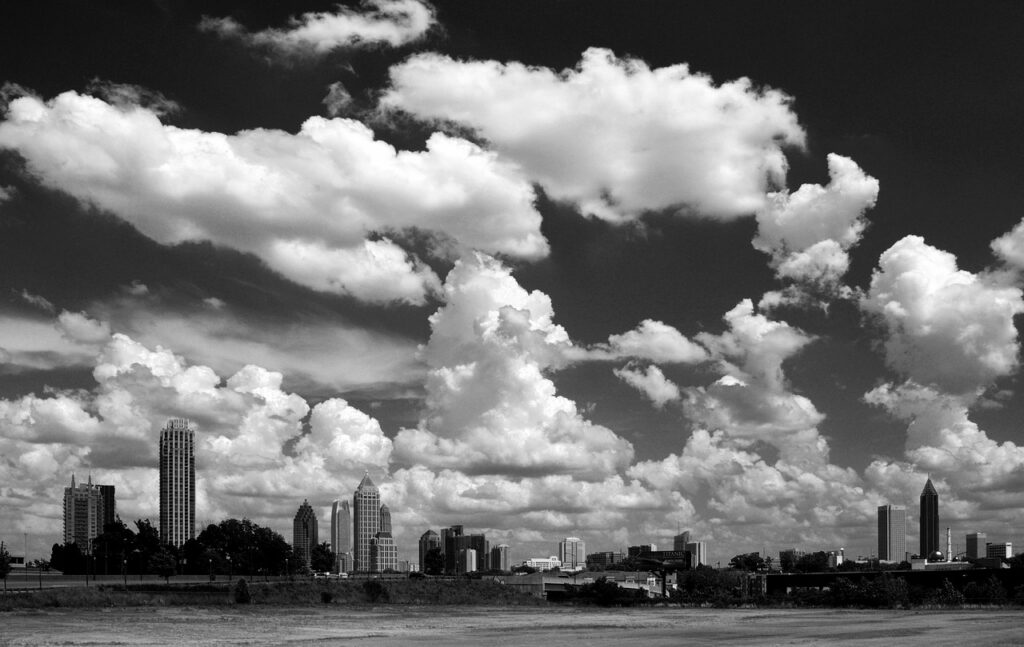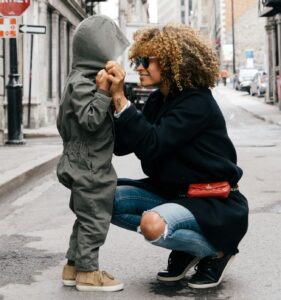
Today, March 16, 2022, marks the one year anniversary of the Atlanta spa shootings where eight people, including six Asian American women, died. Do you remember where you were when you heard of the murders? How you felt when the news reached you and your loved ones? Like many Asian Americans, I remember feeling a visceral pain at the news. After a year of increasing anti-Asian hate and violence during the pandemic, especially against our community’s most vulnerable members such as women and the elderly, it heightened an already existing sense that our families’ safety and security were more at risk than at any other time in my generation’s memory.
I am heartbroken at the attempts of some both in- and outside my community to capitalize on Asian pain and fear to use us as a wedge against other marginalized groups. For example, popular narratives in some media outlets and social networks amplify stories of Asian and Black conflict in a way that falsely portrays Black people as disproportionately responsible for anti-Asian violence. In reality, Black people are still the most-targeted group for hate crimes in much of the United States.
I am proud of past and present Asian solidarity with Black people, Hispanic people, Jewish people, queer people, disabled people, and other marginalized groups, which uplifts and protects us all. We must reject the narrative that pits us against each other instead of against our common enemies: ableism, homophobia and transphobia, white supremacy, misogyny, and more. I am not interested in serving as a talking point for someone else – especially someone in power – to shut down affirmative action, expand the carceral state, or pursue policies that harm others in my community’s name.
White supremacy and misogyny have played a particularly damaging role in the attitudes of some would-be allies to the Atlanta spa shootings. The hypersexualization of Asian women continues to be a cultural problem throughout the West. While many fail to see the larger consequences (e.g., “So what? It’s a compliment!”, “I wish men thought of me as exotic and sexy like that!”, “Fox eyes aren’t racist!”, “But my Asian sister-in-law/friend/coworker doesn’t think it’s offensive!”), the fact is that this fetishization led a man to kill predominantly Asian female spa workers to eliminate his own sexual temptations. The fact that so many quickly accepted the man’s assertion that race played no role shows widespread ignorance about the dehumanization that naturally flows from racialized sexual objectification.
Teachings by some leaders of the Church of Jesus Christ of Latter-day Saints, including women, reinforce a larger culture of victim blaming when it comes to modesty. President Elaine S. Dalton, then in the Young Women General Presidency, writes in a 2007 Liahona article, “modesty is the foundation stone of chastity. Just as one does not hike trails inhabited by rattlesnakes barefoot, similarly in today’s world it is essential to our very safety to be modest. When we are modest, we show others that we understand our relationship with our Father in Heaven as His daughters…We simply cannot afford to be casual or get too close to the edge. That is dangerous ground for any daughter of God to walk” (emphasis mine). This language sets up victims and survivors for judgment and a lack of empathy when sexual violence occurs. Others say, “Well did she heed the warnings?” “What was she wearing?” “That’s what happens when you stray from the path.”
Elder Tad R. Callister of the Presidency of the Seventy said at a BYU-Idaho devotional in 2013, “The dress of a woman has a powerful impact upon the minds and passions of men. If it is too low or too high or too tight, it may prompt improper thoughts, even in the mind of a young man who is striving to be pure.” I imagine this quote resonates with those like the Atlanta shooter who seek to blame others for their sexual temptations.
Then BYU President, Jeffrey R. Holland spoke something much closer to the truth in a devotional all the way back in 1988: “I have heard all my life that it is the young woman who has to assume the responsibility for controlling the limits of intimacy in courtship because a young man cannot. What an unacceptable response to such a serious issue! What kind of man is he, what priesthood or power or strength or self-control does this man have that lets him develop in society, grow to the age of mature accountability, perhaps even pursue a university education and prepare to affect the future of colleagues and kingdoms and the course of the world, but yet does not have the mental capacity or the moral will to say, “I will not do that thing”?…I refuse to buy some young man’s feigned innocence who wants to sin and call it psychology.” We need to extend the same pure love of Christ beyond young women in Church relationships alone. Vulnerable women – include women of color, women in sex work, migrant women, homeless women, all women who are infinitely harder for women of privilege to relate to – deserve to have their agency and dignity respected, too.
Poor, immigrant women are seen by many white women and men as expendable or even deserving of punishment – especially if they are undocumented or employed in sex work, where they are often conflated with those who are complicit in coercive sex trafficking. Women have a long history of mobilizing to fight sexual vices, but some recently intensified advocacy to combat sex trafficking in particular have focused on types of crimes that almost never occur and have harmed the most vulnerable among us instead. QAnon supporters voicing their support for online campaigns #SaveTheChildren and #SaveOurChildren have committed a slew of crimes in the United States in the name of saving children from predators, with white women playing an increasing role in amplifying pedophilia-related conspiracy theories.
These beliefs are used to justify policies that make more people vulnerable to trafficking and sexual abuse. For example, increased policing and the threat of arrest have made sex workers and undocumented women in general less likely to report crimes and receive needed help. Instead, we should be bolstering support for the policies we know work: better housing, more child welfare, free addiction treatment, increased access to sufficient food and water, and protections for undocumented immigrants including those who are victims of crime. Asian American women should be able to live free from violence regardless of their background or their profession.
If you’re looking for a way to commemorate the day, please consider taking time to remember those who died one year ago today either at home or at one of the many vigils occurring in the United States and around the world. If you have time, learn about Asian Americans’ contributions, culture, and long history of solidarity in the fight for racial justice. If you have money, please donate to one of the many Asian American social justice organizations advocating for systemic, long-term change. (My favorite progressive Asian American advocacy organization where I’m from, Virginia, is the Hamkae Center.)
Asian Americans have always been so much more than stereotypes and what other people have tried to use us for or have seen us as. Today, I mourn the loss of the Atlanta shooting victims and the countless other Asians who have been attacked around the world seemingly for nothing more than how they look or how they were perceived by their attackers. But I also draw on the strength of our extraordinarily diverse and resilient peoples, whose identity and power and dreams I know will continue long after the hateful ideology du jour has faded into oblivion.






2 Responses
Thank you for this, Nicole. I’ve lived in Georgia just outside of Atlanta and I absolutely remember hearing the news of the shootings.
[…] of color and marginalized populations. In memory of the March 2021 Atlanta shootings, Nicole beautifully wrote about the role of white supremacy, misogyny, ableism, homophobia, and transphobia that undergird so […]